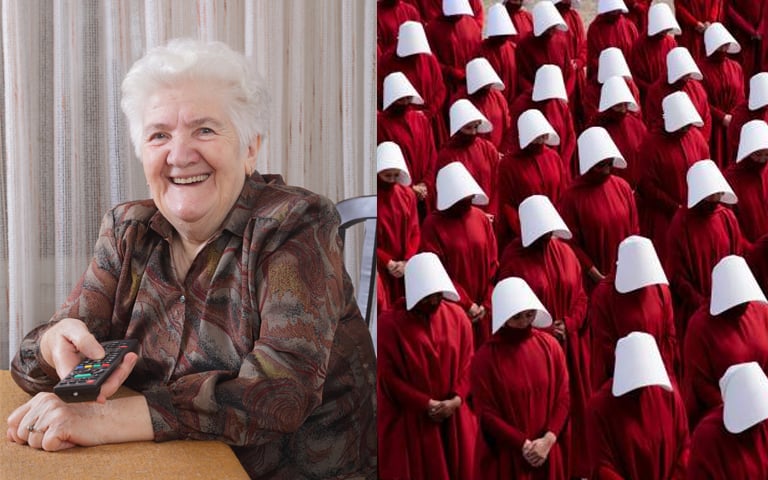
CLANCY OVERELL | Editor | CONTACT
As Season 4 of the US TV hit The Handmaid’s Tale returns to screens in Australia, millions of viewers are tuning into SBS to get their fix of the terrifying plot lines that weave across the misogynistic dystopia.
The program is most popular with female audiences – as it tells the harrowing story of the main character is June, who was forced into being a Handmaid after trying to escape her indentured service as a surrogate babymaker in an religious fundamentalist regime.
The Handmaid’s Tale is set in Gilead, which used to be the US before an extremist Christian sect rose to power and enforced a totalitarian regime that has enslaved all females.
In this alternative universe, women are treated like property, the fertility rate is in decline and the those who are able to conceive children are forced to repopulate the country.
Dissenting women who are infertile are punished by death or are sent to clean toxic waste, but fertile “fallen women” are used as “Handmaids” – where they are forced to bear children for the childless Commanders — the high-ranking male politicians running the society — and their complicit elite wives.
Australian women, young and old, are glued to the screens this week after 20 months since the thrilling season 3 finale. The programme is often described as an ‘dystopian horror’ that exaggerates the current trajectory of Trump-era America. However, it seems the militarised patriarchy of ‘Gilead’ doesn’t seem to induce the same horror in one one local nanna.
“Oh it all looks like a bit of fun doesn’t it” says Beatrice Kelly (82), who is yet to fully appreciate how much this tv show scares her granddaughters.
“I really like the fashion as well”
Like many Catholics raised in rural Australia, Beatrice’s upbringing was arguably even more authoritarian than the fictional universe she’s currently immersed in.
“Gilead is actually quite beautiful. It reminds me of Goulburn” she says.
“And the women have such a strong camaraderie in the face of these chauvinistic pigs”
“Back in my day we were kept in doors as kids and had to raise our siblings.”
“And then we were married off to make as many kids of our own as we could”
“and we had to raise them as well.”
“Gilead is my Narnia!”










